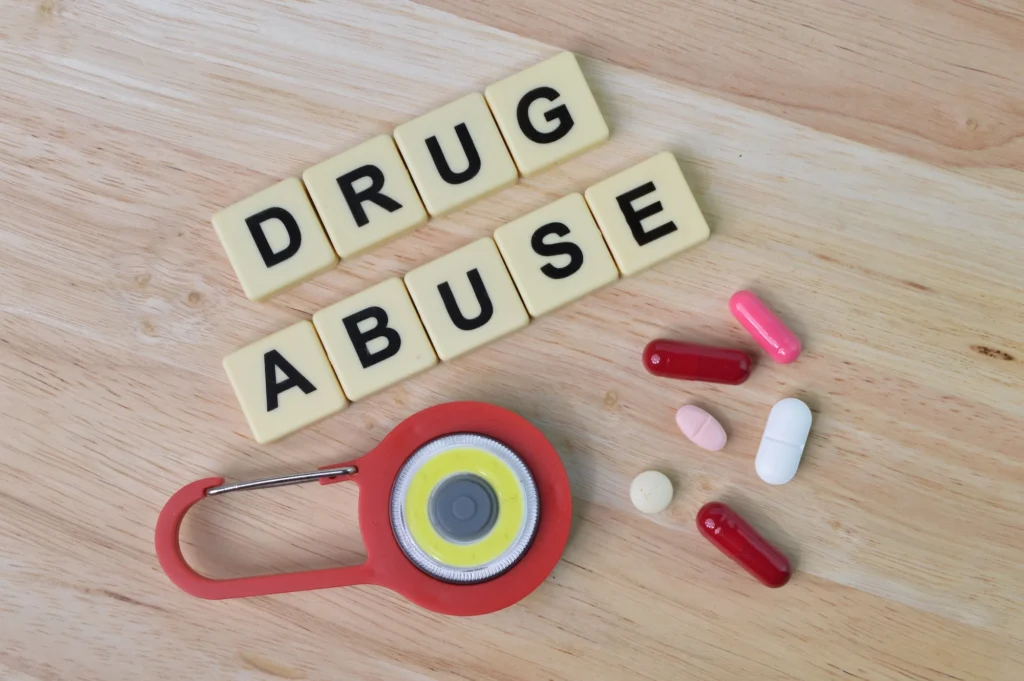Do you occasionally abuse drugs in ways that you should not? Perhaps you once needed help focusing on and studying for your exams and you took something usually prescribed for attention deficit disorders. You may have gotten the drug illegally or used someone else’s prescription for them, either way that could be considered drug abuse.

Perhaps you just wanted to relax, have fun, and forget about all your worries or suffering. It could have been a matter of circumstances, where you gave in to peer pressure at a party just to fit in or avoid disapproval.
You may have also taken a higher dose of a drug that had been prescribed to you, out of negligence or to enhance its effects, that is textbook drug abuse. No matter the circumstances, as long as you consumed the drugs on rare occasions and you have the power to say no to them, your actions qualify as drug abuse.
When your occasional drug abuse turns into a habit and you cannot stop, chances are you have already crossed the threshold towards addiction. This is especially true when you continue to take drugs even though your actions are causing you personal, professional, financial and, maybe, even legal problems.
You know you are addicted to drugs when:
- You start craving the drug and looking for excuses to consume it
- You want to stop using the drug but you cannot
- Not taking it makes you feel sick or out of control
- The urge to take it becomes more important than anything else
- You are willing to sacrifice things and relationships you used to care about just to keep using the drug
How Does Drug Addiction Step In?
Believe it or not, it all starts with your brain. It makes you crave experiences that induce a state of well-being, pleasure, or happiness. It makes you want to repeat those experiences again and again, so that you can continue to enjoy yourself.
Drugs target the reward system in your brain. They cause a release of dopamine, a neurotransmitter regulating feelings of pleasure and satisfaction. It is in your nature to seek pleasure and satisfaction, so you will, naturally, take the drug again to continue to experience its effects.
With time, however, your brain adjusts to the increased dopamine levels. Obtaining the same effects requires a higher dose of the drug. At the same time, the activities that used to bring you pleasure and satisfaction lose importance. Without realizing it, you lose interest in your hobbies or spending time with your loved ones.
Used in high doses and/or repeatedly, drugs can harm your brain. They can negatively affect your brain’s circuits and chemical systems. In doing so, they will mess up with your judgment, memory, and ability to learn, focus, and make decisions.
Doing these things slowly but surely becomes more difficult when you are off the drug. As you come to realize it, you will have one more reason to continue to abuse the drug. Unfortunately, your brain is not your only enemy. Other factors favor drug addiction as well.
Factors That Contribute to or Favor Drug Addiction
Each person is different and may start consuming drugs for a different reason. Some love the euphoria, others love the temporary memory loss and pain relief. There are also people who hate losing control and once they realize that is what drugs do never try them again.
Some people are more likely to become addicted to drugs than others. What do these people have in common or what factors increase the likelihood of drug addiction stepping in? Here are some of the most common:
- A family history of alcohol or drug abuse or addiction – People whose parents and/or siblings were addicted to or abused drugs or alcohol will likely follow on their footsteps. However, a history of drug addiction should not be used as a justification for your own abuse or addiction. It should represent a warning sign and a reason for you to avoid consuming drugs ever again or seek help while you still can.
- Using drugs at an early age – The brains of children and teenagers are still growing. Drug consumption during this period can mess affect the process and increase the risk of addiction at an older age.
- Mental disorders – People who are depressed, suffer from attention deficit, are anxious, or worry excessively are more vulnerable. Drugs make them feel better so they tend to become a necessity.
- Relationship troubles – Family troubles, the loss of a loved one, past traumas and insecurities can drive a person to drugs. Without loved ones to look after you and support you when things get tough, sliding on the path of drug addiction becomes easier as well.
The list of factors that favor drug addiction could continue. However, why and how drug addiction occurs is not as important as overcoming it.
Let Us Help You Overcome Your Drug Addiction!
If you or a loved are addicted to drugs, we can help. At Asheville Recovery Center, we will work with you to discover and eliminate the causes of your drug addiction. We will give you the tools and help you develop the strength required to overcome your addiction and get back on track. Call and schedule a free consultation to find out more of what we can do for you!






